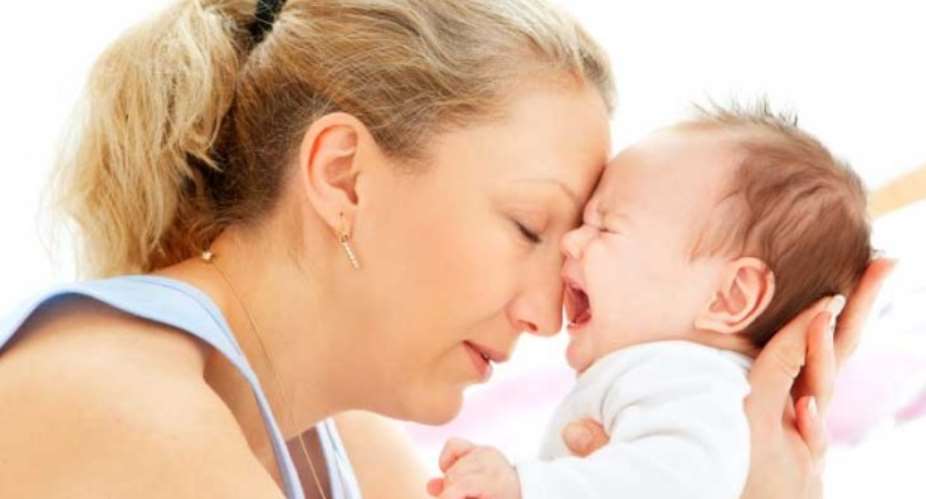Pregnant women generally expect the days and weeks following the following the birth of their child to be a cheerful and memorable time. In any case, many have likewise known about "baby blues": sadness and extreme emotional episodes that often starts a couple of days subsequent to giving birth. In the event that the sadness doesn't leave, it might be the start of depression.
Labor is trailed by sensational and dramatic alterations in the body's hormones as you acclimate to never being pregnant again. Depression after labor is called postnatal (or baby blues) depression. It's fundamentally the same as the sort of depression that can affect people in any period of their life. Your emotions are also likely to be in turmoil-a new baby brings huge changes to your lifestyle. And you may not find it easy to come to terms with the reality of motherhood and the demands that your baby makes on you.
Loved ones might be eager to help but will tend to direct all their attention towards the newborn baby rather than you, a gigantic change from when you were pregnant. Around 8 out of 10 suffer from baby blues soon after giving birth. These feelings are probably caused by the dramatic changes in hormone level that follow childbirth. Some 1of 10 women may develop a much more severe long term postnatal depression.
The following women are more likely to develop postnatal depression:
- Women who have already had anxiety disorders or despondency previously.
- Women who experienced stress and stressful situations amid pregnancy and after labor.
- Women who are in a bad relationship or who don’t live with their partner, as well as those who have experienced domestic abuse and who generally have less social support.
In this case, you may need to talk to your doctor. Your doctor may prescribe antidepressant drugs.
Ways to look after yourself after childbirth
Many women feel worn out and unable to cope or adapt to their present change after having a new baby. If you have given birth recently and are feeling tragic, blue, anxious, irritable, tired or have any of the other symptoms mentioned here, remember that many other women have had the same affair. You're not “losing your mind” or “going insane” and you shouldn't feel that you just have to suffer.
These ideas may help;
- You're not expected to be a “supermom.” Be honest and straightforward about how much you can do, and ask other people to help you.
- Talk to your partner and ask for as much help and support from your family and friends. If possible ask someone else to do your house chores or housework.
- Try to take a nap whenever the baby sleeps, rather than doing chores
- Take your baby out at least once a day for a walk
- Prioritize and stop doing all non-essential tasks such as ironing
- Even if you can only get one thing done on any given day, this is a step in the right direction. There might be days when you can't complete anything. Do whatever it takes not to get furious with yourself when this occurs.
- Try to do exercise you learned in your antenatal classes including relaxation. This exercise is a gentle progressive one which will help you regain your figure, raise your energy level and boost your spirits. Nonetheless, be mindful so as not to try too hard.
It's OK to feel overwhelmed or overpowered. Childbirth brings many changes, and parenting may be a new role. When you're not feeling like yourself, these changes can seem like too much to cope with.
Image source: essentialbaby.com.au






 We’ll protect state wealth from opaque deals – Prof Jane Naana
We’ll protect state wealth from opaque deals – Prof Jane Naana
 Mauritania president says running for second term in June polls
Mauritania president says running for second term in June polls
 I won't ever say I was a mere driver’s mate' — Prof. Opoku-Agyemang
I won't ever say I was a mere driver’s mate' — Prof. Opoku-Agyemang
 2024 polls: 'EC struggling to defend credibility'— Prof. Opoku-Agyemang
2024 polls: 'EC struggling to defend credibility'— Prof. Opoku-Agyemang
 Akufo-Addo gov't's 'greed, unbridled arrogance, unrestrained impunity, sheer dis...
Akufo-Addo gov't's 'greed, unbridled arrogance, unrestrained impunity, sheer dis...
 Election 2024: Ghana needs an urgent reset, a leadership that is inspiring – Ma...
Election 2024: Ghana needs an urgent reset, a leadership that is inspiring – Ma...
 Partner NDC to rollout a future of limitless prospects – Prof Jane Naana Opoku-A...
Partner NDC to rollout a future of limitless prospects – Prof Jane Naana Opoku-A...
 NPP will remain in gov’t till Jesus comes — Diana Asamoah
NPP will remain in gov’t till Jesus comes — Diana Asamoah
 Sunyani Technical University demands apology from former SRC president over sex-...
Sunyani Technical University demands apology from former SRC president over sex-...
 'Dumsor' was resolved by Mahama but ‘incompetent' Akufo-Addo has destroyed the g...
'Dumsor' was resolved by Mahama but ‘incompetent' Akufo-Addo has destroyed the g...
